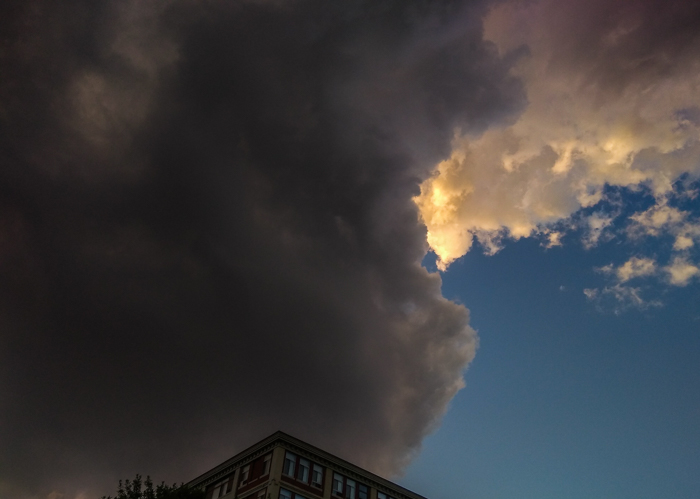Open Letter: Preventing COVID-19 in Housing

August 27, 2020
An open letter to the Honorable Governor Charles Baker and Honorable Members of the General Court
Greetings,
We write to seek your help in enabling immediate action to prevent a wave of disease and death from the unchecked spread of COVID-19 in public and subsidized residences for elderly and disabled persons. There are 92,000 residents of some 1,400 such facilities and they are all at risk. Some landlords, managers, and tenants are working together and succeeding to protect everyone from exposure and infection; others, not so much. And some tenants are not heedful of the risk to themselves and their neighbors, failing to adhere to the protective protocols.
We have seen the devastation caused by infection in elderly facilities such as the Holyoke Soldiers’ Home and in so many nursing and assisted living residences.
A similar disaster in public and subsidized housing—although a smaller risk—is nevertheless real and, I fear, has already begun.
I have received reports which, although not confirmed by any official source, indicate that deaths and illness caused by COVID-19 are taking place in both public and subsidized housing in Essex County.
Actions to prevent a wide disaster include:
- Housing providers need to take all appropriate actions not only to clean and sanitize, but to educate and to enforce protective protocols.
- Tenants need to follow the protective protocols. Tenants will be more likely to follow the protocols if there is a trusting and collaborative relationship with management.
- Local health departments need to actively use their powers to sanction those who endanger the lives of others by not following the rules.
- Implement Acts (2020) Chapter 93 on reporting cases in public and subsidized housing to the Department of Public Health, and the timely dissemination of facility-specific public health reports to guide housing providers and tenants. If landlords cannot provide case reporting, there are other sources for this information. Modify Chapter 93 as needed.
- Use such public health data to identify problems and rapidly intervene to upgrade the protective actions by landlord and residents, with the application of sanctions to landlords and residents who refuse to comply; provide timely financial and other resources to enable all protective measures.
In facilities with reported deaths and infections, tenants continue to hold meetings, social gatherings, cookouts and the like without strictly following the protective protocols. And some landlords either do not care, do not consider the protection of tenants’ health to be part of their mandate; including the inability to enforce rules and/or to collaborate with tenants on these vital matters of health and safety.
Public health officials can and should sanction non-compliance.
Professional guidance should determine the degree and method of reducing risk. For example, people may be able to gather safely outside, provided they maintain physical distance, masking, and hand cleaning. Tenants and staff should receive masks and hand sanitizer. If people need to quarantine, they must receive full wrap-around services including meals, laundry, and appropriate mental health support. Staff must have paid sick leave to reduce the possibility of their spreading infection.
We urge you to investigate and take all such actions as can rapidly address this situation and prevent sickness and death.
Please do not hesitate to contact me if you have any questions.
Thank you for your consideration,
Jerry
Jerry Halberstadt
Coordinator, Stop Bullying Coalition
Background
In the Holyoke Soldiers’ Home and in many nursing facilities, the most egregious factors leading to the spread of disease included:
- allegedly unqualifed leadership; unsupervised staff
- lack of external oversight and accountability
- lack of available PPE
- mixing of sick and healthy individuals
- lack of transparency; no one outside of the institution knew what was happening.
Public Health
We know that the primary route of transmission of COVID-19 is by the spread of droplets from an infected person, through the air, and breathed by another. A secondary route is through the deposit of the droplets on surfaces where they can be picked up by touching and then touching the face.
From published reports, we conclude that the extent and intensity of social interaction among members of a residential community, and interaction with members of the general community where there are cases, together affect the potential for infection.
Therefore, public health intervenes to use testing to identify cases, contact tracing to identify all possible carriers, and various degrees of isolation to separate carriers of the disease from others.
Since anyone can be infected and spread the disease even before exhibiting symptoms, everyone is a potential carrier. Therefore, infection in a community setting can be reduced by simple actions on the personal level: maintain physical distance from others; wear a surgical mask; wash hands and/or use hand sanitizer. Landlords need to clean and sanitize high-touch surfaces in public areas. Landlords and and residents need to reduce interactions with non-residents, and all who enter the buildings must observe the protective protocols. These represent reasonably effective interventions and are codified into protective protocols.
Resources
Open Letter to the Joint Committee on Public Health
https://stopbullyingcoalition.org/data-reports
Georgetown Housing Banishes COVID-19 and Bullying
https://stopbullyingcoalition.org/georgetown
An Open Letter to the Honorable Governor Charles D. Baker, June 24, 2020 https://stopbullyingcoalition.org/baker-oversight
Jerry Halberstadt, Community Norms, Social Distancing & Bullying (available as PDF on request)
Protective protocols
Hebrew SeniorLife
https://www.hebrewseniorlife.org/covid-19/resources-senior-care-organiz…
2Life Communities Protocols
https://www.2lifecommunities.org/covid-19-protocols-and-procedures
http://stopbullyingcoalition.org/prevention
http://stopbullyingcoalition.org/covid
CDC: Preventing the Spread of COVID-19 in Retirement Communities and Independent Living Facilities
- Log in to post comments
